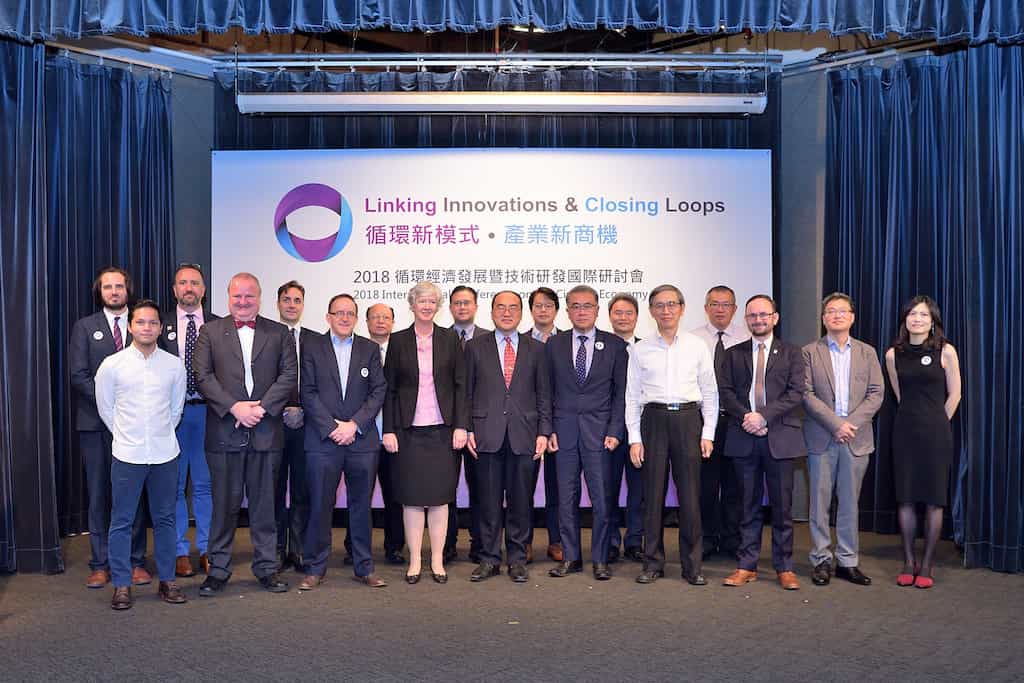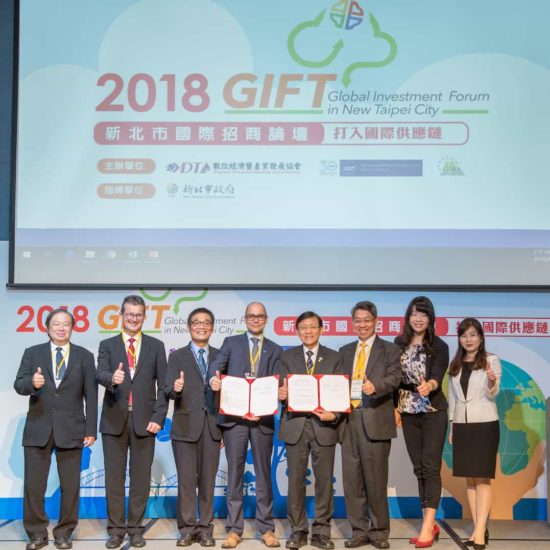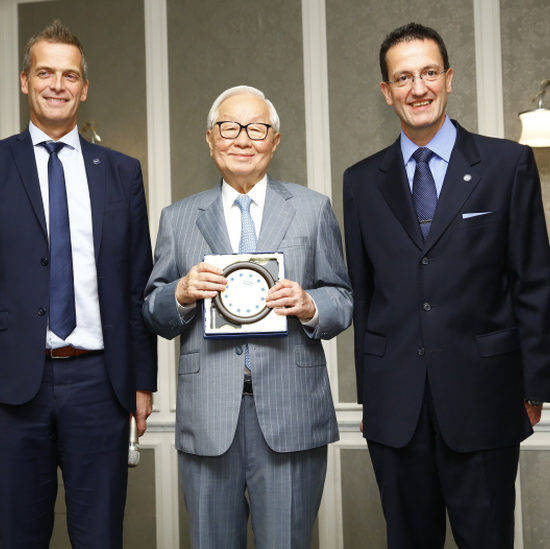IDB Circular Economy Conference

The ECCT's Low Carbon Initiative (LCI) was a co-organiser of the "2018 International Conference on the Circular Economy - Linking Innovations and Closing Loops" organised by the Industrial Development Bureau (IDB), under the Ministry of Economic Affairs (MOEA) in conjunction with the Taiwan Circular Economy Network and World Economic Forum Global Shapers Taipei Hub. The event featured global and regional expert speakers, including a representative from LCI member Scania, as well as RE100, Apple, Dell, and other prominent global companies and organisations, to showcase circular economy solutions to address the challenges of climate change, waste generation and habitat destruction, which continue to increase. At the event welcome remarks were given by Dr Leu Jang-Hwa, Director General of the IDB, Bodo Kretzschmar, LCI Steering Committee Member and Catherine Nettleton, Representative of the British Office Taipei. The remarks were followed by two sessions of presentations and panel discussions.
The event was aimed at sharing knowledge and promoting international collaboration between European, Taiwanese and American entities regarding the circular economy as well as creating partnerships for future project developments to tackle environmental challenges. Taiwan has made considerable progress in recycling over recent years and the government and leading enterprises are now exploring circular economy models.
In his presentation, Sam Kimmins, Head of RE100, spoke about how the world's most influential companies are committing to getting 100% of their energy needs from renewables including LCI members Ikea, Philips Lighting and Google. In his presentation, Frank Shou, Head of Apple's Environmental Initiatives, Asia Pacific & Japan, expressed Apple's desire to give back by reusing old Apple products that have been thrown away as parts for new products, showing Apple's action on the Circular Economy.
In her presentation, Vivian Tai, Head of Environmental Affairs & Producer Responsibilities for Dell Asia Pacific & Japan, explained Dell's initiative of reusing old motherboards not only in new computers, but by also recycling the gold found in them. In so doing the company has collaborated with actress, entrepreneur and activist Nikki Reed to create a limited edition jewellery line collection titled ‘The Circular Collection' by Bayou with Love and Dell. The collection is made in the US and sourced from gold recovered from Dell's recycling programmes. Tai also explained how they are using recovered ocean plastic for the packaging of new products.
In his presentation, Alexander Mastrovito, Head of Sustainable Transport Solutions in Asia & Oceania for Scania, gave a presentation about ‘The Future of Mobility,' regarding waste and transportation. He explained how two very different industries could work together to create biofuel from waste to use for vehicles. He gave examples from Stockholm and Jakarta, where waste recycling has been used successfully for transportation.
In the afternoon session, three speakers from Europe gave presentations. John Newton, Associate Director of the Carbon Trust, explained how his organisation is helping companies to design and implement circular economy business models to meet both internal objectives and global climate (Paris Agreement) and development goals (United Nations' Social Development Goals). He noted that China's ban of the importation of plastic waste from abroad for recycling had been a significant blow to the UK given that it previously exported 65% of its collected plastic waste for recycling to China. He went on to give examples of companies that are already implementing circular business models. For example, tool maker Hilti has shifted from just selling tools to providing a "tools on demand" service to customers, which is both appreciated by the customers and profitable for the company.
In his presentation, Ian Humphreys, Director of Operations for International Synergies Limited explained how his company brings different companies together to find and develop circular economy synergies. It does this by analysing every part of each company's supply chain, identifying areas where one company's waste could be another company's raw material and areas where waste can be developed into a profitable additional business line. He went on to give examples of companies that have been assisted to reduce costs and even make revenue from their waste products.
In is presentation, Daniel Welsch, Director of Business Development from Bianna Recycling, talked about his company's sophisticated recycling machinery and system, which is able to process and transform raw municipal waste into usable resources.


